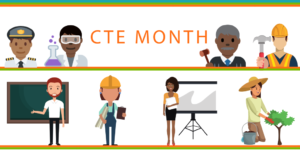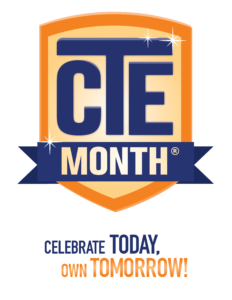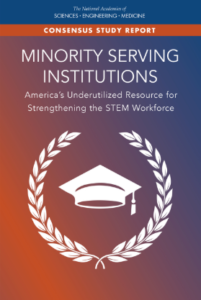Over the past five years, renewed attention has been placed on apprenticeships. This began with investment from the Obama administration, and has continued to be a priority for the current administration. A series of panels last week, hosted by Opportunity America, discussed what to consider when developing and expanding registered and unregistered high-quality apprenticeships, and what the future holds for such programs.
The first panel featured: Tamar Jacoby, Opportunity America; Robert Lerman, Urban Institute; and Brent Parton, New America, with Eric Seleznow as the moderator. Panelists discussed the importance of ensuring that apprenticeship programs address equity and access issues to meet the needs of all learners, as well as represent the communities that they are serving. The panel also discussed the role of states in industry recognized apprenticeships. Tamar suggested that it may be the state’s responsibility to determine what high-quality means, assess what programs are high-quality and create incentives for other businesses to follow that mode. Parton also noted that states play a large role in coordinating systems alignment.
The second panel featured: Laura Beeth, Fairview Health Services; Michael Coley, Automotive Service Excellence Education Foundation; and Robbie Heinrich, Dana Holding Corporation with Tamar Jacoby as the moderator. This discussion featured the employer perspective. All panelists reiterated the importance of including employers when creating apprenticeship policies. Employers cannot be used just in implementation of policy (as an apprenticeship supplier) but must also be involved in creating the foundation of that policy.
 This event also introduced Opportunity America’s report, Industry-Driven Apprenticeship: What Works, What’s Needed by Jacoby and Lerman. This report explores the results of the U.S. Department of Education’s 2016 Adult Training and Education Survey, as well as reviews four case studies of high-quality unregistered apprenticeships in construction, advanced manufacturing, health care and automotive maintenance and repair. The authors also organized a half-day meeting of about 20 employers and employer association executives to learn about program standards from their perspective.
This event also introduced Opportunity America’s report, Industry-Driven Apprenticeship: What Works, What’s Needed by Jacoby and Lerman. This report explores the results of the U.S. Department of Education’s 2016 Adult Training and Education Survey, as well as reviews four case studies of high-quality unregistered apprenticeships in construction, advanced manufacturing, health care and automotive maintenance and repair. The authors also organized a half-day meeting of about 20 employers and employer association executives to learn about program standards from their perspective.
This report offers five policy principal recommendations:
- Create a respected and brand-recognized apprenticeship that is an alternative to traditional academic education;
- Develop some form of standardized occupational frameworks;
- Utilize public funds currently directed to less impactful types of workforce education and training to finance the off-job part of registered and unregistered apprenticeships;
- Provide financial incentives for organizations and industry groups to act as the intermediary; and
- Develop outcome metrics to assess quality.
A recording of the full panels, as well as an introduction of the new report, can be viewed here.
Meredith Hills, Policy Associate



 Read these student blogs and media stories to learn more about learner experiences:
Read these student blogs and media stories to learn more about learner experiences:  High-quality Career Technical Education (CTE) blends academic and technical skills to provide learners with the real-world skills necessary to succeed in today’s workforce. The integration of Advanced Placement (AP) courses into CTE programs of study promotes career-readiness by encouraging the development of these critical academic and technical skills. Advance CTE has previously partnered with the College Board to explore
High-quality Career Technical Education (CTE) blends academic and technical skills to provide learners with the real-world skills necessary to succeed in today’s workforce. The integration of Advanced Placement (AP) courses into CTE programs of study promotes career-readiness by encouraging the development of these critical academic and technical skills. Advance CTE has previously partnered with the College Board to explore  reer Technical Education: Employer Engagement in CTE
reer Technical Education: Employer Engagement in CTE There are roughly 700 Minority-Serving Institutions (MSIs) that produce one fifth of the nation’s Science, Technology, Engineering and Mathematics (STEM) bachelor’s degrees. To discuss the importance of these institutions to the nation’s future, on February 6, the National Academies of Science, Engineering and Medicine hosted a national convocation. The convocation focused on how to leverage MSIs to strengthen the STEM talent pipeline for nontraditional students and students of color.
There are roughly 700 Minority-Serving Institutions (MSIs) that produce one fifth of the nation’s Science, Technology, Engineering and Mathematics (STEM) bachelor’s degrees. To discuss the importance of these institutions to the nation’s future, on February 6, the National Academies of Science, Engineering and Medicine hosted a national convocation. The convocation focused on how to leverage MSIs to strengthen the STEM talent pipeline for nontraditional students and students of color. On January 25, 2019 the Institute for Educational Leadership (IEL) unveiled its 2018-2023 strategic plan, titled
On January 25, 2019 the Institute for Educational Leadership (IEL) unveiled its 2018-2023 strategic plan, titled